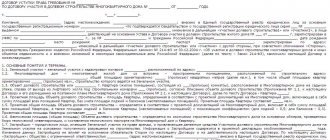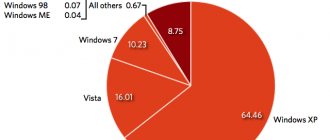Having a share in an apartment or house, you can dispose of it as you wish. Including registering anyone as a shared owner. This person may or may not be your relative, it makes no difference. But serious conflicts often arise on this basis.
What to do if, for example, a tenant registered as a shareholder drinks and interferes with the lives of others? What to do if your ex-husband refuses registration for your new husband? Of course, a lot is specified in the law. But each case is individual. Therefore, we will give you general information, but we recommend that you consult with a housing specialist regarding your specific situation.
Registration required
The question of why temporary registration or registration is needed is answered by the legislation of the Russian Federation. Government Decree No. 713 obliges the population to register at their place of residence. Only in this case, from the point of view of the state, is it possible to fully realize the rights and responsibilities of a citizen. At the same time, according to the Constitution of the Russian Federation, he has the right to choose a place to live at his own discretion.
The legislative framework
All issues of registration of citizens are regulated by the following legislative acts.
- Federal Law No. 5242-1 - establishes the constitutional right to freely choose a place of residence and the basic concepts used in legal acts. The law specifies the need for registration and provides the functionality and powers of supervisory authorities. All information about the registration or deregistration procedure is also given - deadlines, a list of necessary documents, and the responsibility of citizens for failure to comply with regulations.
- Civil Code of the Russian Federation - registration, in addition to registration, is a formalization of civil law relations. The main provision is the owner’s right to dispose and use residential premises (Clause 1, Article 209); in shared ownership, the implementation of this right requires the consent of the remaining owners (clause 1 of Article 247).
- Housing Code of the Russian Federation, regulating issues of staying in residential buildings and premises. According to Art. 30, the owner can transfer the right of ownership of housing on a contractual basis (rent, free use).
This means that the owner - alone or in a group - is allowed to resolve all issues related to the registration of a person at the place of stay. The footage of the property does not matter. Despite the fact that, on an intuitive level, logic suggests the opposite, the concept of a minimum share required for registration does not exist within the framework of current legislation.
Is it necessary
Every citizen of our country is obliged to live somewhere. That is, everyone must have a place of residence. You must register for migration at this address.
This is the duty of every citizen of our country! Foreigners are required to have temporary registration.
At the same time, every citizen has the right to move freely throughout the territory of our country, as well as independently choose their place of residence.
No one can limit this right to him, since it is guaranteed by the Constitution!
However, everyone has the obligation to register at their place of residence or place of stay.
That is, “attach” to a specific address. But such an obligation does not in any way limit the citizen’s right to freedom of movement.
The presence of permanent registration gives a citizen of the Russian Federation the right to the full implementation of his rights and the fulfillment of his duties.
Also, such accounting is necessary for the state to conduct a correct migration policy.
Reflection in the law
Freedom of movement throughout our country, as well as the free right to choose any place of residence, is guaranteed by the Constitution of the Russian Federation.
But, the procedure for registering citizens and deregistering them from it is regulated by the Law of the Russian Federation of June 25, 1993 No. 5242-1 “On the right of citizens to freedom of movement, choice of place of stay and residence in the Russian Federation.”
The obligation of citizens to be “attached” to a specific address, that is, to have permanent registration, is reflected in Government Decree No. 713 of July 17, 1995.
The concept of shared ownership is disclosed in paragraph 2 of Art. 244 Civil Code of the Russian Federation. Responsibility for the lack of registration rests with citizens in accordance with Art. 19.15.1 Code of Administrative Offenses of the Russian Federation.
Where can
You can have permanent registration only in premises that are recognized as residential in accordance with the current legislation of our country.
The Housing Code of the Russian Federation determines that residential premises may include:
- Apartments or rooms in them.
- Private or country houses, as well as shares in them.
That is, these are premises that meet sanitary, hygienic and engineering requirements, are intended for year-round use, and have all the necessary communications.
Temporary registration can be obtained in any premises that is not residential, but is intended for human habitation.
These include:
- medical institutions - sanatoriums, dispensaries, hospitals, etc.;
- jail;
- camping;
- tourist camps and bases;
- hotels and hotels;
- apartments or rented housing.
That is, temporary registration can be issued in premises that are intended for temporary residence of citizens.
Coming Responsibility
For the lack of permanent or temporary registration, the citizen is responsible.
If you change your registration address, you must notify the territorial FMS office of this fact within 3 days. This also applies to temporary relocation to another region.
If the period of temporary residence exceeds 90 calendar days, then it is necessary to obtain temporary registration.
You also need to submit documents within 3 calendar days after arriving at your new place.
According to Art. 19. 15. 1 of the Code of Administrative Offenses of the Russian Federation, living in residential premises without permanent or temporary registration entails administrative liability in the form of a fine.
At the same time, both the citizen who lives without registration and the one who allowed this - the owner or tenant - must pay a fine.
The amount of the fine is set in the range from 2 to 5 thousand rubles, and if such a violation occurred in cities of federal significance - Moscow and St. Petersburg, then the amount of the fine increases slightly.
For citizens who live without registration, the fine is set in the range from 3 to 5 thousand rubles.
And for a tenant or owner of a residential premises who committed such an offense - from 5 to 7 thousand rubles.
But citizens are exempt from administrative liability if they live without registration:
| In the same locality | where they have permanent registration, but at a different address |
| In Moscow or Moscow region | if they have permanent registration in Moscow or the region |
| In St. Petersburg or Leningrad region | if they have permanent registration in St. Petersburg or the Leningrad region |
| In room | which belongs by right of ownership or right of use to their closest relative who has permanent registration in this premises |
What kind of real estate can you register in?
Registration is permitted only in premises recognized as residential. This concept is also defined by the RF Housing Code. Article 15 states that it recognizes real estate in the form of an isolated space suitable for permanent residence. At the same time, it must comply with technical and sanitary standards, a detailed list of which is given in Article 23 No. 52-FZ. In simple terms, it should provide living conditions with minimal amenities.
The number of owners or the type of housing does not affect the possibility of registration - this is the answer to the question of whether those who have a share in the property can register in the apartment. However, there are differences with how registration proceeds with one owner.
Registration in shared ownership
Registration in shared ownership provides for special legal relations, which are based on the absence of a minimum share. In such conditions, each owner has equal rights; it will not be possible to register a person without everyone’s consent. Any decisions regarding registration of housing premises are decided exclusively by all owners. The need for an agreement has several nuances related to the type of residential premises.
Privatized apartment
The most common case that involves registration issues is registration in an apartment with shared ownership. A large number of such residential premises appeared thanks to privatization, after which residents received equal shares of the apartment in ownership. The most common situation is inheriting part of a shared living space or purchasing it and then moving.
What to do if the co-owners are against it?
It is not always easy to obtain permission from the co-owners of an apartment. There may be several explanations for this, for example, conflictual relations between shareholders, antipathy towards the person who is going to be registered.
A situation may also arise when one of the owners is located in another place and there is no connection with him. Is it possible to register a person without the permission of other owners? There are no legal ways. If registration is critically necessary, then you can use workarounds.
One of these ways is to donate your share to a person who needs registration. You cannot sell your share without the permission of others, but you can give it as a gift. However, you should be extremely careful here, because the deed of gift transfers all ownership rights to the object, and the person who received such a gift may simply not return it. Such a risk is justified only if the transaction occurs between spouses.
Another unlikely option is to demand the allocation of a share in kind. If the co-owners of the property are categorically against the registration of a new tenant, then a court hearing can be initiated on the issue of dividing the living space. This is an extremely unprofitable option for all parties. The court very rarely gives approval for an allotment in kind, especially in apartments, because the living space must have such characteristics that separate premises with a separate entrance can be organized there. It is easier to divide a large private house in this way.
Who can be registered
There are exceptions related to the registration of strangers in an apartment with shared ownership. In the case of family ties between the new tenant and the owner of the share, the law provides special rules.
Relatives
For all third parties, regardless of the degree of relationship, registration in a share of the apartment occurs on a general basis. Even the owner's siblings must obtain the consent of the other owners—orally, from a trustee, or in a written agreement. Without this, the accounting authorities will refuse registration.
Spouse
Registration of a spouse in a shared apartment is not much different; the consent of the owners is necessary. Despite the marriage ties, registration will not make it possible to carry out transactions affecting the rights to own residential premises - sale, registration of a deed of gift or exchange. Such actions are impossible because they conflict with the Civil Code of the Russian Federation. If you need your spouse to have such capabilities, instead of registration, you should think about getting a separate share in the property.
Minors and newborns
When registering a child on shared property, the consent of other owners is not required. According to the law, legal capacity is acquired from the age of 14; until this moment, official guardians - parents - act on behalf of the minor. Therefore, the consent given to the father or mother for registration automatically gives them the right to independently register the child in the share.
Unauthorized persons
All other citizens without property rights in their place of residence need to enlist the support of the owners. When registering temporarily, you must indicate in the application the planned length of stay of the resident. Other shareholders should be familiar with it.
Required documents
So, the owner of one of the shares decided to register a tenant. What documents do they need to collect? Here is the required list.
- National passports of all co-owners and citizens who will be registered.
- Written permission from all co-owners for registration.
- Documents confirming ownership of real estate.
- Certificate of departure from previous place of residence.
- Application in the prescribed form.
It is not enough to simply obtain written consent from all shareholders for the registration process. The personal presence of all owners at the registration office is necessary so that the passport office employee can make sure that applications and signatures are not forged, and that pressure is not exerted on the owners of the house. If personal presence is not possible, then the applications must be certified by a notary.
Where to submit documents? There are two options for submitting papers for registration.
Registrations are handled by the Migration Department of the Ministry of Internal Affairs. Previously, the migration service was a separate unit, but now it has become part of the Ministry of Internal Affairs. Documents for registration can be taken directly to the migration department; such offices are traditionally called passport offices. The disadvantage of this option is that the opening hours of passport offices are not convenient for many people; people have to take time off from work to get there. And in order to get to the right window, you have to stand in a long line.
The second option for submitting papers is through the multifunctional center. More and more citizens are resorting to this method of registration because of its convenience. The electronic queue system allows you to save time for those waiting, and qualified employees will help you fill out the application.
For registration, an employee of the migration service or MFC takes the citizen’s passport. In return, he is obliged to issue a certificate, which will be considered a temporary identity document during the absence of a passport, and a receipt for acceptance of documents. When the permanent registration stamp in the passport is affixed, the person will receive an SMS informing them that they can come to the MFC and pick up the document. As a rule, the registration process takes a short time, about a week.
Registration without the consent of other residents
Difficulties may arise if other owners object. There is a solution that newlyweds most often use - drawing up a deed of gift. Registration in shared ownership without the consent of other residents is possible in this case - the new owner has the same rights to housing as everyone else. For other categories of citizens, conflict situations will have to be resolved “amicably.” Civil rights clearly indicate that consent to registration in shared ownership is mandatory; in its absence, even the court will not help.
Registration procedure
The procedure for changing the place of residence begins at the passport office at the old place of residence, where it is necessary to deregister. After this, an application is written to the accounting authorities responsible for the site with new housing. After a few days, the registration procedure will be completed, and the corresponding stamp will appear in the passport.
Required documents
Federal Law No. 5242-1 states what documents are needed to obtain registration:
- certificate of removal from the old place of registration;
- passport;
- a document recording the right of ownership of residential premises (for owners);
- a statement accompanied by the written consent of other owners (or in their presence, orally).
No other documents are required for registration.
How to evict an unpleasant neighbor
Sometimes the neighborhood brings a lot of problems to other sharecroppers. The question arises about the forced eviction of such a neighbor, especially if his residence nearby poses a threat to minors.
There are two legal ways to evict a neighbor - challenge his right of ownership of the share by going to court, or offer the person to buy out his share at market value. After the sale and purchase, the neighbor will immediately need to vacate the premises.
If an interested party goes to court to evict a person, the plaintiff will need to prove the illegal acquisition of the right to a share in the housing. For example, the defendant deceived the previous owner or, under the influence of threats, forced him to sell his share. It is necessary to contact a professional lawyer, since it is difficult to prove anything in such cases.
In a situation where the court makes a positive decision on the plaintiff’s application, the neighbor is deprived of his rights to living space.








